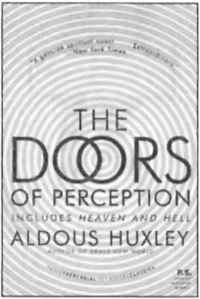
Dates are the year of first publication.
The Burning Wheel |
1916 |
Jonah |
1917 |
The Defeat of Youth and Other Poems |
1918 |
Leda |
1920 |
Limbo: Notes and Essays |
1920 |
Crome Yellow |
1921 |
Mortal Coils: Five Stories |
1922 |
On the Margin |
1923 |
Antic Hay |
1923 |
Little Mexican |
1924 |
Those Barren Leaves |
1925 |
Along the Road: Notes and Essays |
1925 |
Two or Three Graces: Four Stories |
1926 |
Jesting Pilate: An Intellectual Holiday (The Diary of a Journey) |
1926 |
Essays New and Old (U.S. title: Essays Old and New) |
1926 |
Proper Studies |
1927 |
Point Counter Point |
1928 |
Do What You Will: Essays |
1929 |
Brief Candles |
1930 |
Vulgarity in Literature and Other Essays: Digressions from a Theme |
1930 |
The World of Light |
1931 |
The Cicadas and Other Poems |
1931 |
Music at Night and Other Essays |
1931 |
Brave New World |
1932 |
Texts and Pretexts: An Anthology of Commentaries |
1932 |
Beyond the Mexique Bay |
1934 |
Eyeless in Gaza |
1936 |
The Olive Tree and Other Essays |
1936 |
What Are You Going to Do About It?: The Case for Constructive Peace |
1936 |
Ends and Means: An Enquiry into the Nature of Ideals and into the Methods Employed for Their Realization |
1937 |
After Many a Summer Dies the Swan |
1939 |
Gray Eminence: A Study in Religion and Politics |
1941 |
The Art of Seeing |
1942 |
Time Must Have a Stop |
1944 |
The Perennial Philosophy |
1946 |
Science, Liberty and Peace |
1946 |
Ape and Essence |
1948 |
The Gioconda Smile |
1948 |
Themes and Variations |
1950 |
The Devils of Loudun |
1952 |
The Doors of Perception |
1954 |
The Genius and the Goddess |
1955 |
Heaven and Hell |
1956 |
Adonis and the Alphabet and Other Essays (U.S. title: Tomorrow and Tomorrow and Tomorrow) |
1956 |
Brave New World Revisited |
1958 |
Island |
1962 |
Literature and Science |
1963 |

Two classic complete books in which Huxley explores, as only he can, the mind’s remote frontiers and the unmapped areas of human consciousness. These two books became essential for the counterculture during the 1960s and influenced a generation’s perception of life.
“A challenge is forcibly put, ideas are freshly and prodigally presented.”
—San Francisco Chronicle
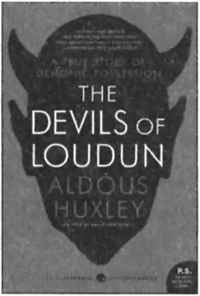
First published in 1952, The Devils of Loudun is Aldous Huxley’s thrilling account of one of history’s most sensational cases of mass demonic possession. The year 1643: When an entire convent is apparently possessed by the devil, a charismatic priest is accused of being in league with Satan and seducing the nuns—both spiritually and sexually. After a celebrated trial, the priest, Urban Grandier, was burnt at the stake for witchcraft. Here is the gripping true history of Grandier and the nuns of Loudun, as told by one of the master storytellers of the twentieth century.
“Huxley’s masterpiece and perhaps the most enjoyable book about spirituality ever written. In telling the grotesque, bawdy and true story of a seventeenth-century convent of cloistered French nuns who contrived to have a priest they never met burned alive as a warlock… Huxley painlessly conveys a wealth of information about mysticism and the unconscious.”
—Washington Post Book World
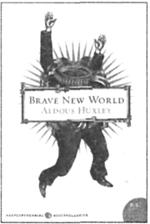
The astonishing novel Brave New World, originally pblished in 1932, presents Aldous Huxley’s vision of the future—of a world utterly transformed. Through the most efficient scientific and psychological engineering, people are genetically designed to be passive and therefore consistendy useful to the ruling class. This powerful work of speculative fiction sheds a blazing critical light on the present and is considered to be Aldous Huxley’s most enduring masterpiece.
“Mr. Huxley is eloquent in his declaration of an artist’s faith in man, and it is his eloquence, bitter in attack, noble in defense, that, when one has closed the book, one remembers.”
—Saturday Review of Literature
“Huxley never went out of style. Something about his work seem[s] to tug at our consciousness…. There is no escape from anxiety and struggle, and Huxley assists us in attaining this valuable glimpse of the obvious, precisely because it was a conclusion that was in many ways unwelcome to him.”
—Christopher Hitchens
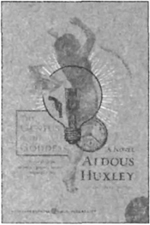
Talking with a friend on Christmas Eve while a small grandson sleeps upstairs, John Rivers is moved to set the record straight about his mentor—the legendary scientific genius in whose home, thirty years before, ecstasy and torment had laid hold of Rivers, shocking him out of “half-baked imbecility into something more nearly resembling the human form.” Fatefully, Rivers had an affair with the famous man’s young wife, bringing the couple to ruin. Now back in print, The Genius and the Goddess is Aldous Huxley’s lost novella of the conflict between reason and passion.
“A genius…. A writer who spent his life decrying the onward march of the Machine.”
—The New Yorker
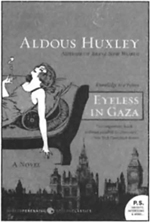
First published in 1936, Eyeless in Gaza is Aldous Huxley’s loosely autobiographical novel of one man’s search for an alternative to the moral disillusionment of the modern world. Anthony Beavis, a cynical libertine Oxford graduate, comes of age in the vacuum left by World War I. His life, loves, and foreign adventures leave him unfulfilled, until a friend inspires Anthony to become a revolutionary in Mexico. Shattered by the experience, Anthony forges a radical new spiritual understanding. Eyeless in Gaza remains one of the finest modern novels, a testament to Huxley’s powers as an artist and thinker.
“An important book…. Without parallel in our contemporary literature.”
—New York Times Book Review

When the novel Brave New World first appeared in 1932, its shocking analysis of a scientific dictatorship seemed a projection into the remote future. Here, in one of the most important and fascinating books of his career, Aldous Huxley uses his tremendous knowledge of human relations to compare the modern-day world with his prophetic fantasy. He scrutinizes threats to humanity, such as overpopulation, propaganda, and chemical persuasion, and explains why we have found it virtually impossible to avoid them.Brave New World Revisited is a trenchant plea that humankind should educate itself for freedom before it is too late.
“It is a frightening experience … to discover how much of his satirical prediction of a distant future became reality in so short a time.”
—New York Times Book Review
In this, his last novel, Huxley transports us to a Pacific island where, for a hundred and twenty years, an ideal society has flourished. On the island of Pala—as in the Brave New World—science has helped to advance the founder’s plans. But this time those plans have the goal of freeing each person, not enslaving him. Inevitably this island of bliss attracts the envy and enmity of the surrounding world—not least because of its vast oil reserves. A conspiracy is underway to take over Pala, and events begin to move when an agent of the conspirators, a newspaperman named Faranby, is shipwrecked on the island.
“Island is a welcome and in many ways unique addition to the select company of books—from Plato to now—that have presented, in imaginary terms, a coherent view of what society is not but might be.”
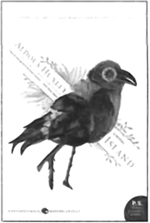
—New York Times Book Review
Don’t miss the next book by your favorite author. Sign up now for AuthorTracker by visiting www.AuthorTracker.com.